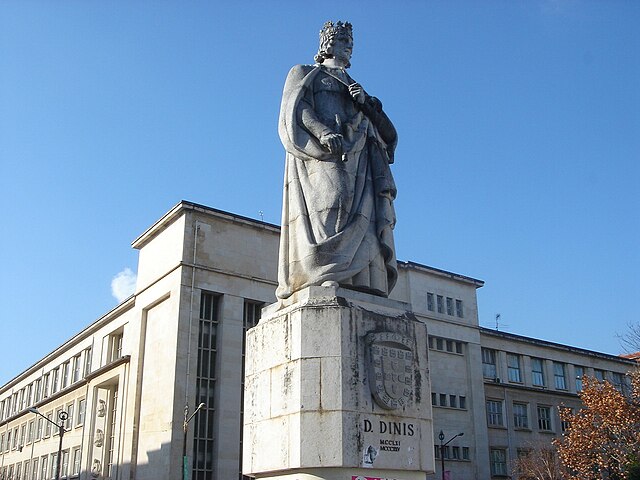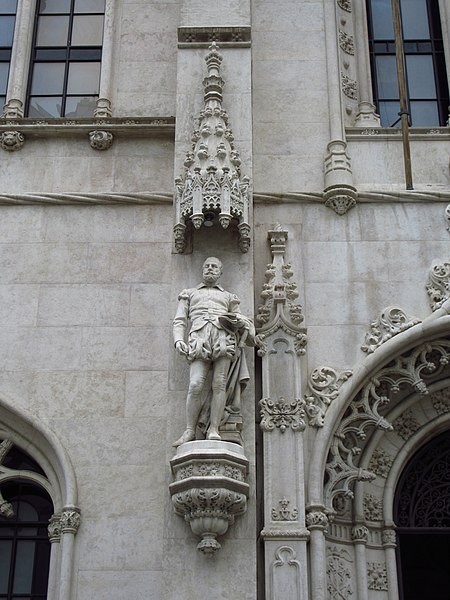The University of Coimbra is a public research university in Coimbra, Portugal. First established in Lisbon in 1290, it went through a number of relocations until moving permanently to Coimbra in 1537. The university is among the oldest universities in continuous operation in the world, the oldest in Portugal, and played an influential role in the development of higher education in the Portuguese-speaking world. In 2013, UNESCO declared the university a World Heritage Site, noting its architecture, unique culture and traditions, and historical role.
King Denis I of Portugal ratified the Studium Generale in Portugal in 1290.
Statue of King Dinis, in Coimbra
King John III of Portugal made Coimbra the definite home of the university.
The Joanine Library.
Portuguese is a Western Romance language of the Indo-European language family originating from the Iberian Peninsula of Europe. It is the official language of Portugal, Brazil, Cape Verde, Angola, Mozambique, Guinea-Bissau and São Tomé and Príncipe, and has co-official language status in East Timor, Equatorial Guinea, and Macau. Portuguese-speaking people or nations are known as "Lusophones". As the result of expansion during colonial times, a cultural presence of Portuguese speakers is also found around the world. Portuguese is part of the Ibero-Romance group that evolved from several dialects of Vulgar Latin in the medieval Kingdom of Galicia and the County of Portugal, and has kept some Celtic phonology.
Sign in Japanese, Portuguese, and English in Oizumi, Japan, which has a large lusophone community due to return immigration of Japanese Brazilians.
Multilingual signage in Chinese, Portuguese and English at the Hong Kong–Zhuhai–Macau Bridge port building in Macau. Portuguese is a co-official language in Macau.
Statue of the Portuguese Poet Luís de Camões at the entrance of the Real Gabinete Português de Leitura in Rio de Janeiro.
Museum of the Portuguese Language in São Paulo.








